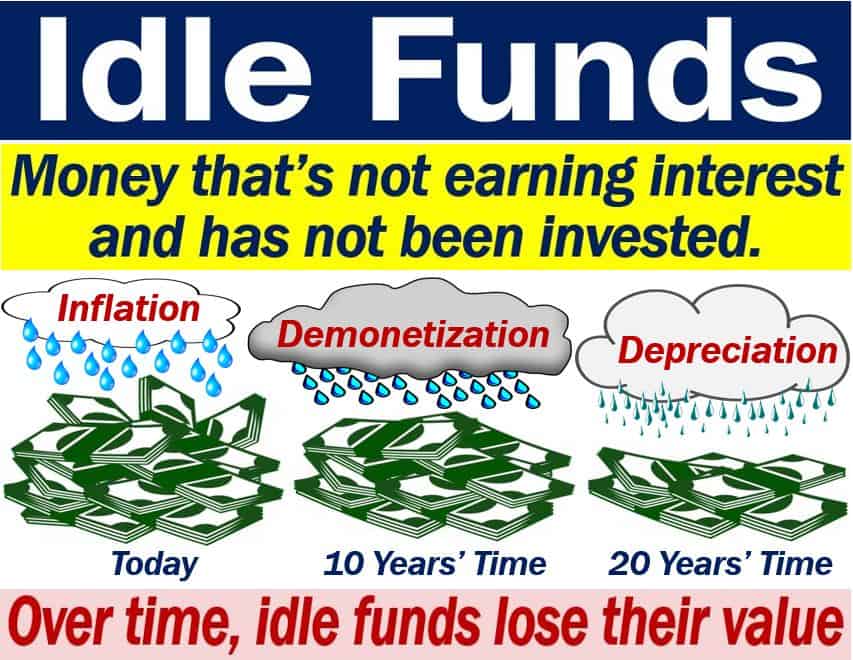Idle funds or idle money are funds that the owner has not invested in anything and are not earning any interest. The funds, as the name suggests, are ‘idle,’ i.e., they are not taking part in the economic markets. People are not using them to create wealth, and they do not appreciate in value. Many people refer to them as ‘wasted funds.’
Idle money earns no income for the owner, and will not earn the owner any income in the future. Specifically, they will earn no income in the future if their current idle status remains the same.
Funds that somebody deposits into a no-interest checking account (UK: current account), for example, are idle funds.
Farlex Financial Dictionary has the following definition of the term:
“Money that is not being invested. Idle funds do not make a return and are usually used for spending.”
“Common examples of idle funds include cash and money in checking accounts.”

Idle funds – a waste of money
To earn money we have to work. Like humans, funds must also work to earn money.
People who do no work at all are idle. Money that does not work is also idle.
From a financial point of view, being idle is a waste of time. Time is money. Therefore, idle money is a waste of money.
During periods of high inflation, idle money loses its value more rapidly. In other words, not only is it not earning money, but it is also losing its value.
Inflation occurs when prices rise, i.e., things become more expensive.
However, we cannot invest all our money. We need cash to buy goods and services, and to pay our bills. That is why we have checking accounts.
However, we should be able to forecast our spending and budget properly. If we do, we can keep the level of idle funds to a minimum.
People who need access to cash but do not want to leave their money idle should consider investing in short-term interest accounts.
These accounts provide a short-term rate of interest. However, they do not make the depositor’s money inaccessible for long periods.
According to an article on InvestingAnswers.com, from a financial perspective, idle funds are money that we waste.
Businesses with idle funds
If your business produces more cash than you had expected, you should try to avoid building up idle money.
You could invest in new machinery or technology, expand your transportation fleet, or consider extending your warehouse facilities. Invest in improving productivity or getting new customers.
Another option is to prepay some expenses, such as insurance or rents.
If your company has a lot of cash lying around, perhaps it is time to acquire another company.
